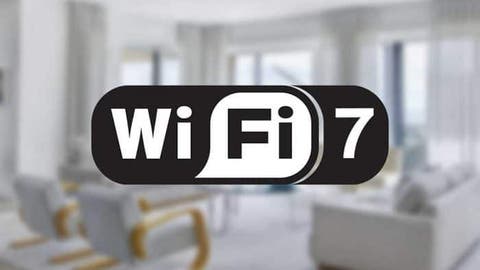As everyone knows, Wi-Fi 6 has become popular just recently when the first products supporting this standard became commercially available. But once Wi-Fi 6 went to the market, corresponding companies have already started to promote Wi-Fi 7.
The speed of Wi-Fi 6 can reach 9.6Gbps, while the speed of Wi-Fi 5 is 3.5 Gbps. This shows that the increase is still very obvious. However, Wi-Fi 7 can reach a speed of up to 30Gbits per second. This simply means it can provide better streaming video, cover longer distances, and reduce congestion issues. However, for this new standard, the Wi-Fi Alliance has not started a wide promotion yet.
At present, the latest three Wi-Fi standards are IEEE 802.11n, 802.11ac, and 802.11ax, and they are certified as Wi-Fi 4, Wi-Fi 5, and Wi-Fi 6, respectively. Therefore, 802.11be is a strong candidate for receiving Wi-Fi 7 tags.
What Innovations Will Wi-Fi 7 Bring?
In the future, this technology will not only transmit data faster but even detect the user’s physical location and breathing rate. We can imagine the future application of this technology. For example, when an elderly woman is at home alone, if you install Wi-Fi with the above functions in her house, we can know whether her behavior is normal and whether everything is ok with her. But this does not guarantee that Wi-Fi 7 will add human detection capabilities when released. Not to mention, it will take at least four years for the next Wi-Fi standard to be released. Nonetheless, allowing home networks to detect the possibility of human presence is important because it can open the door to more innovation.
Also Read: IEEE Explores New Wi-Fi Features: Can Detect You Walking And Breathing
Moreover, such a system can be used to open doors automatically. When you go home, the home Internet will detect your presence and combine this data with the signals from the device or camera system you are wearing. And it will automatically unlock the door when you walk upstairs. If these assumptions are true, we can say due to Wi-Fi 7, we will truly enter the era of the Internet of Everything.
Finally, before all this happens, the IEEE needs to ensure that these powers are strongly protected. It should include personal privacy. And complex Wi-Fi networks should be protected from intrusion. The IEEE has assigned a dedicated team to address the privacy issues of the new Wi-Fi standard.
